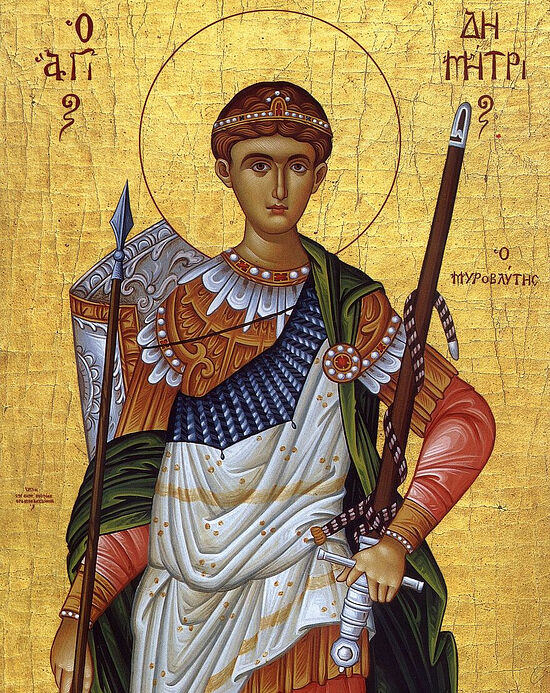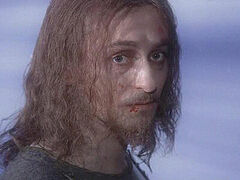Dear fathers and brother concelebrants, dear parishioners, I heartily greet you all with your patronal feast, the commemoration of the holy Great Martyr Demetrios of Thessaloniki. The holy Great Martyr Demetrios suffered in the early fourth century. As a native of Thessaloniki of noble parents who were secret Christians, he inherited love for Christ and great fidelity. Being a well-rounded, deeply educated man, he was close to the emperor and was even appointed proconsul, that is, he was appointed head of a certain region. But, governing the people righteously, he couldn’t accept the emperor’s order to persecute Christians. These persecutions were terrible; they weren’t simply driven out from one city to another. It was enough for some crime to be committed in the city for Christians to be immediately hunted down as troublemakers. Rome considered such oppression of Christians completely justified.
What was the main reason for the persecution of Christians? Perhaps that the emperor didn’t know Christ or couldn’t make Him one of the gods of his pantheon? These reasons were more pragmatic. The Roman emperor had to keep the empire calm, and the people, feeling the strong Roman hand, went beyond the bounds of tolerable gratitude and started deifying the emperor. The Roman rulers resisted this at first, but then resigned themselves, realizing that they could better rule the empire through this deification, because the government would have that sacred power that could keep the people in obedience. Without persecuting the inhabitants of the empire on religious grounds, everyone was able to worship the god he wanted and confess the religion he wanted—the emperor demanded only one thing: to throw a pinch of incense into the censer on the designated day and say: “Caesar is Lord.” And then the people could do whatever they wanted, live however they wanted, worship whomever they wanted, and profess whatever religion they wanted.
Knowing that there is but one Lord, the Christians refused to give Divine honors to the Roman emperor, and that means, whether willingly or unwillingly, they resisted the power of Rome, and therefore persecution came crashing down upon the Christians. They were accused of all kinds of terrible sins. If someone said he was a Christian, sentencing was immediately carried out, and he was executed.
Under such conditions, St. Demetrios remained faithful to Christ. He wasn’t afraid of the imperial power; he wasn’t afraid to lose his position, to be humiliated and insulted among the people. He showed his otherness; he became other than how the world would have him be. When we remember the holy martyrs, ancient or modern, we see one and the same thing: “I have no other God than the Lord Jesus Christ with His Father and the Holy Spirit. I honor the authorities, but I don’t deify them; I obey the law, but I don’t grovel; I respect everyone, but I keep my faith.” These most important axioms have been inherent to Christian confessors from time immemorial. And now? They’re not persecuting the Church now, they’re not destroying Christians, at least not in our country. We must also confess the Lord as our only Savior, and honoring the authorities, we must also fulfill the law of Christ before those imposed upon us by the state.
Times are coming when a man won’t be forced to renounce Christ as was done in the first centuries of Christianity. It will be a latent anti-Christian infection, when false values, incompatible with the Gospel, will be imposed upon us, offering falsehood instead of truth, under the guise of truth. There can be a renunciation of Christ here too—this should be feared no less than open persecution.
Apostasy from Christ can be silent, when we see lawlessness and remain silent, or when we’re called to commit this or that immoral act, and we do it only because others are doing it, so that no one would point a finger at us.
Therefore, in honoring the memory of the holy martyrs and confessors, we should examine ourselves as to what is Christian in our life and what isn’t, as to where we could depart from Christ without even thinking about it. When we worship our Lord and Savior, prayerfully recalling and entreating the intercession of such great saints like the holy Great Martyr Demetrios, let us ask for the firmness to confess our faith, to stand strong in Orthodoxy, and for faithfulness to our Christian calling.
I greet you all, my dear brothers and sisters, with the feast. And may the grace of God, through the prayers of the holy Great Martyr Demetrios of Thessaloniki, be with you all.




